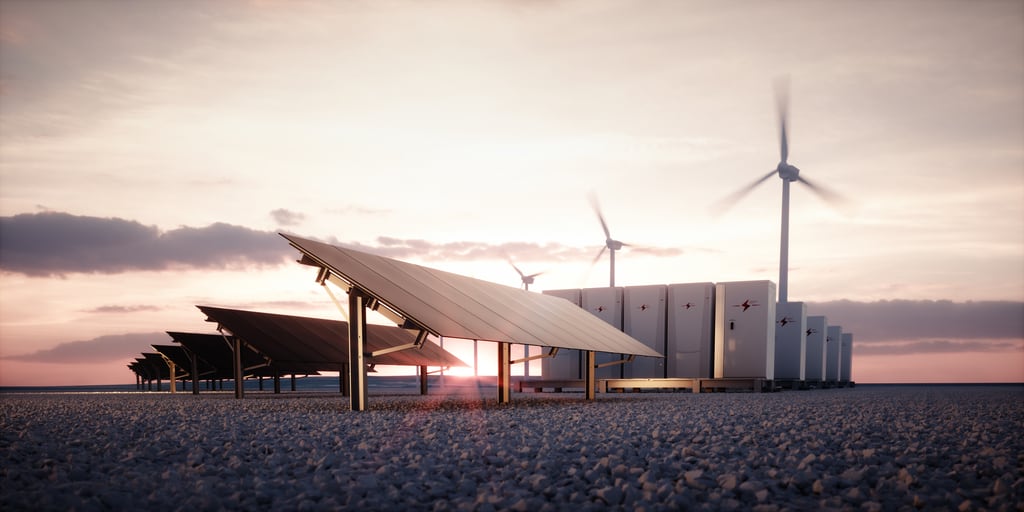4 Sustainable Techniques in Modern Utility Work
By Jack Shaw
Sustainability is an essential part of modern operations. In addition to the benefits for the planet, adopting efficiency and sustainability practices can bring many other advantages — cost savings being a primary tenet. Compliance with government-ordered regulations is also becoming more relevant in today’s landscape.
The impact is especially monumental in the energy and utilities industries. Combine that with the fact that many utility companies have already committed to net zero carbon goals, and collectively, we’re well on our way to seeing some pretty stark changes.
Of course, the question remains — what do sustainable techniques in modern utility work look like? What is the reality, and what are some things comparable providers should aim to achieve within their operations?
1. Renewable Energy
The big question on nearly every executive’s mind involves investing in or installing renewable energy solutions to empower operations. Solar is a viable option, but wind, geothermal, and hydropower solutions currently exist, too. Using renewable energy over traditional power brings two major benefits— better reliability and fewer emissions, both of which are carbon-neutral targets.
Utility and power companies are uniquely positioned to explore alternative energy sources, such as energy produced from biomass. Diversifying an energy portfolio with alternatives means there are new and innovative ways to generate and sustain power when traditional avenues become increasingly challenged.
Our reliance as a society on the main power grid, primarily served by traditional fossil fuels, is changing rapidly, not the least of which because of proposed federal and EPA guidelines. A forward-looking update to operations that include newer, renewable sources can be considered as preparing operations for an inevitable future.
2. Energy Storage
Powerful energy storage solutions are often coupled with renewable energy. With solar, which generates power during daylight hours, energy storage preserves the excess so it’s available at night or in emergencies. A broader, more commercialized option could be significantly expanded to offer the same for large-scale utilities and power companies.
These technologies also introduce more efficient monitoring and consumption opportunities, giving teams more control over power usage, flow and distribution. For example, during off-hours, power usage could be reduced to loosen the reliance on energy reserves or completely bypassed when energy is being generated.
That creates an ebb and flow in the way power is generated, stored and used throughout the day or night. It also positively impacts many of the core tenets of sustainability, including power consumption, waste, energy efficiency and reduced emissions if paired with renewable energy sources.
3. Modern Excavation
Excavation is an integral process for utility and energy companies for various reasons. Crews will eventually need to dig, whether to install new wires or components, service existing equipment or prep new areas for installation. One of the more common forms of excavation involves heavy machinery, which also requires several machines like dump trucks, backhoes and excavators. That means more fuel, more emissions and fewer sustainability goals are met.
Modern techniques involve hydro or air excavation, using significantly fewer machines. Both methods are cost-effective, versatile, precise and safe — and provide a layer of efficiency that the traditional process cannot. The hydro technique, for instance, is a much better choice when underground utilities and infrastructure are present. There’s virtually no risk of the water damaging mission-critical components. By using reclaimed water, cutting down on the heavy machinery in use and producing fewer emissions, it’s also much better for the environment.
4. Optimized Equipment
Out in the field, service vehicles and heavy machinery significantly impact sustainability initiatives, which can be hard to quantify, especially with older, outdated equipment. Measuring emissions for dozens of vehicles, for instance, is a challenging feat. Utility and power companies can combat this by upgrading their fleets — opting for more efficient alternatives — and turning to smart technologies, like IoT and fleet maintenance solutions.
Fleet tracking software improves visibility for a modern fleet, spanning a wide range of vehicle types from simple trucks and transport vehicles to heavy construction machinery. Some benefits include better route planning, reduced fuel consumption, improved driver safety, easier expense tracking, and, perhaps most importantly, streamlined inspections and maintenance.
Malfunctioning or poorly operating vehicles can be taken off the road before the environmental impact worsens. Improper maintenance routines or poor maintenance can reduce the performance of vehicles like a semi. Keeping maintenance routines automated, scheduled and consistent can keep the entire fleet operating like new and reduce many impactful changes, like decreasing emissions.
The Best Time to Reinforce Sustainability is Now
There’s never been a better time to optimize for sustainability, as many utility and power companies face rising operational costs, reliability concerns with the traditional grid, fewer resources and a rapidly changing climate. Reducing emissions, improving reliability and lowering many associated costs are all related to strong sustainability initiatives, so many benefits exist.
Many common ways to improve sustainability are incredibly accessible to utility and energy providers. Swapping to renewable energy sources, reducing or optimizing energy usage and adopting backup energy storage solutions are all great places to start. Upgrade fleet and machinery to be more efficient, implement better fleet monitoring tools and use newer service techniques like hydro or air-based excavation.
The sooner companies start, the better positioned they’ll be.
About the author: Jack Shaw is the senior editor of the men’s lifestyle magazine Modded and has written extensively about electric vehicles, sustainable practices and maintaining a green lifestyle through your everyday actions. His writing can be found in Green Living Journal, Packaging Digest, EcoHotels and more. Connect with him via his LinkedIn.
